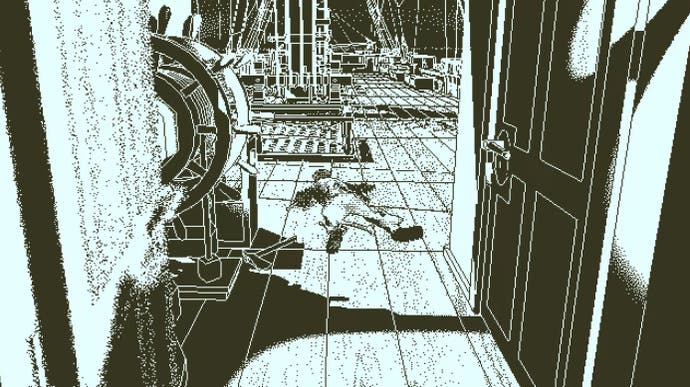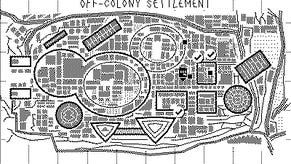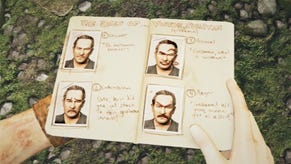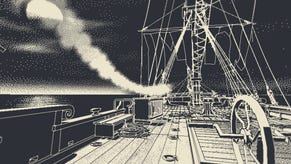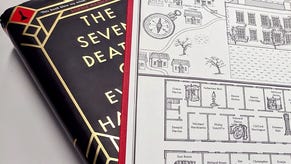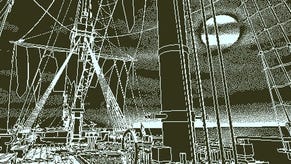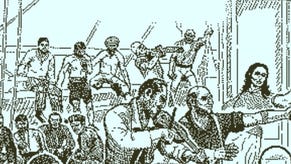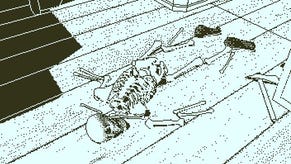Interrogating detective mechanics with a real-life detective
Crime doesn't play.
What makes a good detective game? It's a harder question than you might think.
From puzzle-solver to shooter to narrative choice-maker, detective games represent a unique blurring of genre. But they also retain some of gaming's most recognisable hallmarks. Whether it's a trench coat, a sinister scheme, or a world-weary protagonist with a whiskey-soaked voice - all things that have migrated to games from film noir and crime fiction. In a similar fashion, detective games have formed their own mechanical quirks - finding clues, reconstructing events, interrogating suspects, using 'detective vision' to scan crime-scenes, and some form of logical inference. Many of these mechanics represent ideas about detective work which have been popularised through fiction, but how close are they to the actual truth? I spoke to Adam Richardson, a police detective in California, who as the author of the Writer's Detective Handbook: Criminal Investigation for Authors and Screenwriters, is uniquely qualified to discern the point where reality and cliché collide.
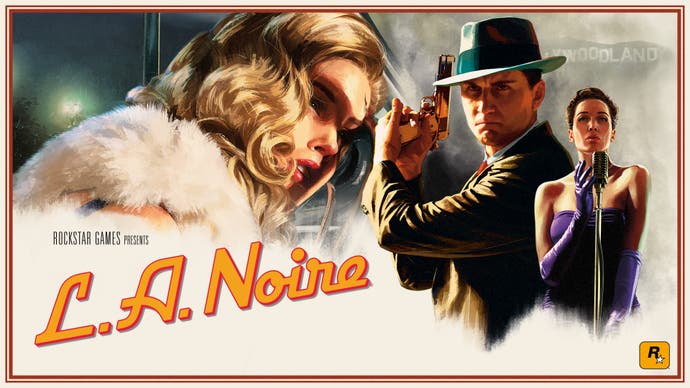
L.A Noire is the perfect place to start - a game which combines a self-aware channeling of noir influence with a fairly comprehensive accounting of 1940s police work and procedure. "L.A. Noire did a pretty good job of covering realistic detective work, but it is still both a game and fiction" Richardson explains "Many aspects of detective work have changed drastically in the last 70 plus years. L.A. Noire takes place in an era before modern forensic science, before the Miranda decision (which requires rights being read before custodial interrogation), and a whole host of other advances and changes to policing."
Interrogation is a key element of L.A Noire. Part of the games' original marketability was based around the truth/doubt/lie system, allowing players to watch motion capture performances of actors playing suspects, then use those choices to apply pressure. In the game there is always a route to the truth, to a confession, but is that typical in an interrogation? "Confessions are not uncommon but we certainly don't get them in most cases" says Richardson. "The way interrogations really work is getting your suspect to tell you a story, even if the story is full of lies. Then use evidence to poke holes in that statement." L.A Noire does implement this idea, allowing players to use found evidence and clues to either contradict a suspects' story, or prove that what they are saying is a flat-out lie. But a large component of this still hangs on the performances of actors. "I rarely got the lie-spotting gameplay portion correct" confesses Richardson. "The mechanics they used in L.A. Noire with the motion capture of the actors' facial actions were ground-breaking for that era. But lie-spotting, and truth-spotting for that matter, encompass far more than a quick eye-flutter or twitch".
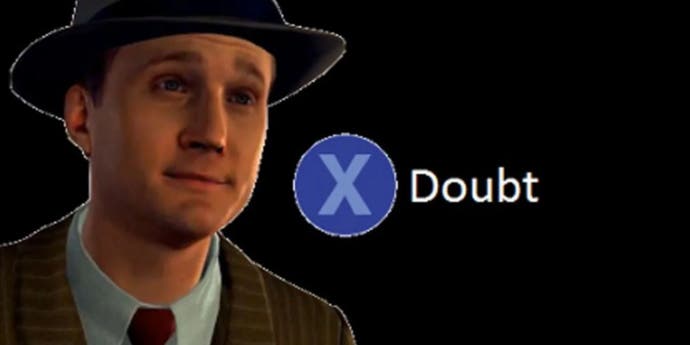
Action is also a huge component of L.A Noire. On the mean streets of post-war Los Angeles with crime on the rise, gunfights and violent altercations are inevitable. But I've always wondered, is detective work really so exciting? "My very first day landed me in the middle of a big undercover operation that seemed right out of a movie." Richardson recalls "There was the beautiful undercover agent, the muscle-bound informant being wired up, a surveillance team, a duffle bag filled with kilos of cocaine. I thought, "This is awesome!" But a week later I learned that the vast majority of my job was sitting in a cubicle reading incoming cases, scheduling interviews/interrogations that were held in a nearby room, and writing follow-up reports. Fiction will never show just how much writing is involved in a work day. I am thankful for that though, because the only thing more boring than paperwork is watching or reading about someone else doing paperwork."
L.A Noire reflects a pretty positive balance between these elements of realism and the embellishments of its namesake genre. But it is also one of the best game representations we have of a key aspect of detective work: talking. "We aren't cranking the necks of murder victims like Cole does, but talking to people is a fundamental part of the job. While the rules on how we do this have changed, the task remains the same. If you can't talk to people, you aren't going to succeed as a detective."
The Sinking City is another game which blurs the borders between realistic detective work and creative embellishment. Made by Frogwares, a Ukranian developer well known for their Sherlock Holmes series, it sought to effectively create a detective sandbox - an open world detective game taking influence from the approach of classic tabletop game Sherlock Holmes: Consulting Detective. While it is debatable as to whether it was successful in achieving this, there are a number of mechanics which attempt to reflect this approach - the lack of map markers, the archive mechanics rewarding player ingenuity, and of course, the mind palace. "I don't know of anyone that uses a mind palace, and they probably wouldn't share it if they did for fear of endless practical joking" says Richardson. "I think we all use deductive "if-then" reasoning at some point in our investigations, but we have to fill in enough of the reasoning gaps with evidence/proven facts. So while we may make deductions, we can really only use those deductions to lead us to find further proof."
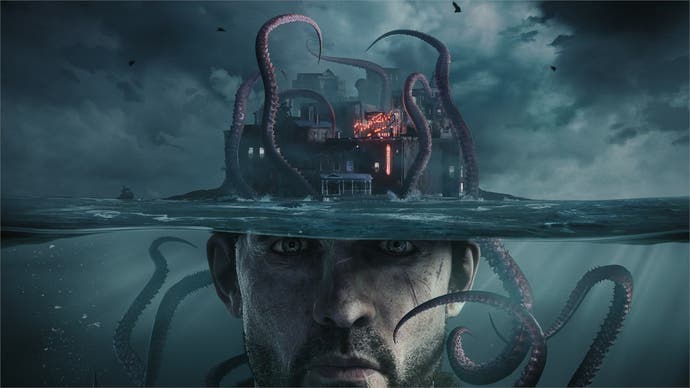
Sinking City allows players to combine facts to create deductions in cases, but it leaves some of the most important deductions up to the player. Should you save an expedition of scientists? Or leave them to die? In the face of no correct answer or validation, these deductions become more akin to personal judgement. "Discretion is a huge part of police work. Do we follow the letter of the law or the spirit of the law?" says Richardson. "Police work is really a field of applied philosophy or applied ethics. Are we concerned about the greater good or are we focused on our actions holding a moral worth? These are the kinds of decisions that police officers evaluate throughout their workdays, and yes, they are hugely personal." So while game detectives have in some ways come to represent gun-toting figures of power and choice, the truth is even they have both a huge obligation and a moral responsibility.
But Sinking City's struggle in creating an open world detective game highlights an ongoing issue with the genre as a whole - how do you create an open world consisting of closed systems? When detective mechanics are incredibly recognisable, and the role of information so heavily defined, how is openness possible? Even L.A Noire's open world, despite some random events, doesn't truly foster an open approach, in part also due to game's linearity. Only one game has achieved what I would call an open detective sandbox, but what's most interesting is it's arguably not a detective game at all.
"I didn't actually know I was making a detective game until Obra Dinn was mostly done so I wasn't basing design choices on how other detective games worked" says Lucas Pope, creator of The Return of Obra Dinn. "The core loop in Obra Dinn is finding a corpse, exploring the moment of death, and noting information in the scene. Defining those limits early helped me to focus on how to structure the overall narrative and progression to keep it understandable and revelatory."

In The Return of Obra Dinn you play an Insurance Assessor, who with the help of a mysterious watch, the Memento Mortem, must piece together through details the tragic fate of every soul who perished during the voyage of its namesake ship. At its heart the game is one giant logic puzzle, but its brilliance lies in allowing players freedom in terms solving it.
"I think the openness of the deduction is partially due to my development process." Pope explains "You can imagine the narrative as having tiers: one chapter per disaster, multiple deaths per chapter. Once I'd worked out the structure of what the disasters would be and who would die in each one I basically just started building the scenes."
Where most other detective games define the role of information heavily, Obra Dinn simply represents a sandbox of information, a tool to access it, and the players' own intellect. It also reflects an organic central puzzle - every time you uncover the fate of a crew member, all the other fates shift slightly. "When creating the story and laying out the clues, I could rely on the fact that some identities would be easier to deduce than others and that just by solving these easier ones, the harder ones would automatically become easier due to a narrowing field of options." says Pope "This works nicely to let all clues contribute globally in some small way to all identities, which means different players can find and interpret different clues and still progress similarly."
Everyone knows the Sherlock Holmes quote: "Once you eliminate the impossible, whatever remains, no matter how improbable, must be the truth". But is process of elimination a tool actually used by detectives?
"The problem with that logical inference is that it can lead to premature theories on how something happened." Richardson explains. "That is never the goal of an investigation. The goal is letting evidence speak for itself, leading the investigators to the truth of what happened. Process of elimination rarely plays an active role in an investigation, because we rarely are working with a dataset that requires systematic elimination of its elements. Return of Obra Dinn is a brilliant puzzle game disguised as a detective's investigation, but not the other way around." This is precisely true - one of the reasons Obra Dinn is such a good detective game is because it isn't really a detective game at all, at least not in genre terms. By avoiding the defined role of what a detective is/does/how they look at the world and the role of information through their eyes, Obra Dinn grants a relative openness to players.
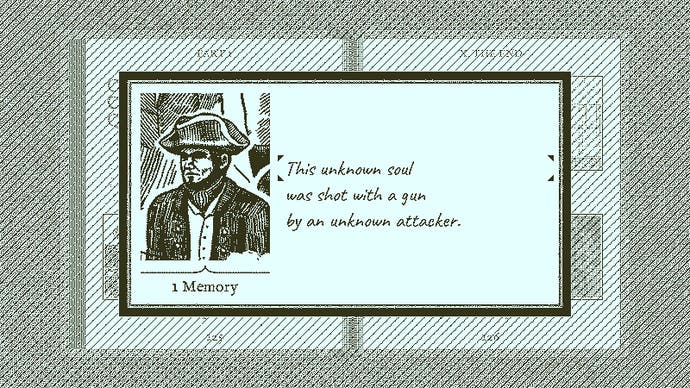
Though even Obra Dinn struggles to represent intuition. In detective games you will often see a mechanic which represents this indefinable aspect of detective work - whether 'Intuition Points' in L.A Noire, 'Retrocognition' in The Sinking City, or the 'Memento Mortem' in Obra Dinn. There is some aspect of detective work that we can only ever represent very broadly.
"Oh how I wish I could go back in time and see a snippet of what actually happened at a crime scene!" Richardson says. "For detectives, I think our front row seat of observing human nature plays a role in having a little bit of intuition about when someone is concealing something, or when something doesn't feel right. I think it stems from experience and unconsciously understanding patterns to things... and when something seems out of sorts with that unconscious knowing of the pattern, that intuitive feeling is a knock from your brain saying something isn't right here, pay attention."
Detective games often feel like a conflict between style and substance - they give you a hat, a gun, car-chases, a city, all of the things we are told we need to feel like a detective. But the truth of the experience lies in the mystery, the puzzle, and having the freedom to come to a realisation yourself. As Richardson describes it "akin to feeling a short, subtle vibration in your controller that most other players will never even notice. You still don't know what that vibration meant, but you know there's more to this than meets the eye."
Detective Adam Richardson is host of the Writer's Detective Bureau podcast and author of Writer's Detective Handbook: Criminal Investigation for Authors and Screenwriters. Learn more at writersdetective.com
